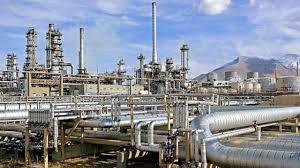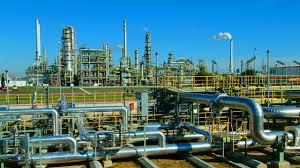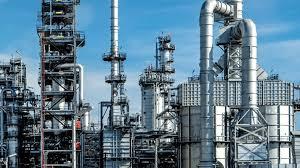The persistence of fuel scarcity in Nigeria, despite its abundant crude oil reserves and four refineries, can be attributed to a range of factors, many of which are linked to corruption and mismanagement.

Here are some key reasons:
1. Corruption in the Oil Sector:
- Mismanagement of Resources: Corruption leads to the misallocation and mismanagement of funds allocated for refinery maintenance and upgrades.
- Theft and Diversion: Oil theft and the diversion of refined products are rampant, reducing the amount of fuel available for domestic consumption.
2. Inefficiency and Underperformance of Refineries:
- Poor Maintenance: Due to corruption, funds meant for maintenance often get diverted or embezzled, leading to frequent breakdowns and inefficiencies in the refineries.
- Operational Challenges: The refineries often operate below capacity due to outdated infrastructure and a lack of investment in technology.
3. Import Dependency:
- Importation Costs: Despite having refineries, Nigeria imports a significant portion of its refined petroleum products due to the inefficiency of local refineries. Corruption in the importation process can inflate costs and create shortages.
- Subsidy Regime: The government often subsidizes fuel, but subsidies can be manipulated for personal gain, leading to shortages and financial losses.
4. Smuggling:
- Cross-Border Smuggling: Subsidized fuel is often smuggled to neighboring countries where it can be sold at higher prices, leading to domestic shortages.
- Corruption at Borders: Corrupt officials may facilitate smuggling operations, exacerbating the problem.
5. Regulatory and Policy Failures:
- Lack of Effective Oversight: Corrupt practices weaken regulatory bodies, making it difficult to enforce policies and regulations effectively.
- Policy Inconsistencies: Frequent changes in government policies and regulations, influenced by corrupt interests, create an unstable environment that hinders long-term planning and investment.
6. Economic Impact:
- Foreign Exchange Issues: Corruption affects the allocation of foreign exchange for fuel importation, leading to delays and shortages.
- Public Trust and Investment: Corruption erodes public trust and discourages both local and foreign investment in the oil sector.
7. Social and Political Factors:
- Rent-Seeking Behavior: Politicians and officials often exploit the oil sector for personal gain, prioritizing short-term benefits over long-term solutions.
- Conflict and Instability: Corruption can fuel social and political unrest, further destabilizing the oil sector and disrupting supply chains.
In summary, corruption at multiple levels of the oil supply chain in Nigeria contributes significantly to the persistent fuel scarcity, despite the country's natural resources and infrastructure. Addressing these issues requires comprehensive anti-corruption measures, better governance, and substantial investment in the oil sector.
AfriPrime App link: FREE to download...

The issue of Nigeria's four refineries being in a constant state of disrepair and not operating at full capacity is multifaceted.
Here are the main reasons why these refineries remain inefficient and unreliable:
1. Corruption and Mismanagement:
- Diverted Funds: Financial resources allocated for the maintenance and upgrading of refineries are often misappropriated or embezzled by corrupt officials.
- Incompetent Management: Poor management practices and lack of accountability result in inefficiencies and operational failures.
2. Lack of Investment:
- Outdated Infrastructure: The refineries were built decades ago and have not received the necessary investment to upgrade their technology and infrastructure.
- Underfunding: Continuous underfunding hampers routine maintenance and the procurement of spare parts, leading to frequent breakdowns.
3. Operational Inefficiencies:
- Technical Problems: Chronic technical issues and mechanical failures are common due to the age and poor condition of the equipment.
- Skilled Workforce: There is often a lack of adequately trained and skilled personnel to operate and maintain the refineries effectively.
4. Government Policies:
- Policy Inconsistencies: Frequent changes in government policies regarding the oil sector create an unstable environment that discourages long-term investment in refinery operations.
- Subsidies and Price Controls: Government subsidies and price controls can distort market dynamics, making it unprofitable for refineries to operate efficiently.
5. Vested Interests:
- Importation Lobby: Powerful interests in the fuel importation business may influence policies and decisions to keep refineries non-functional to maintain the lucrative import market.
- Rent-Seeking Behavior: Politicians and officials may prefer to maintain the status quo to continue benefiting from rent-seeking activities linked to fuel imports and subsidies.
6. Maintenance Culture:
- Poor Maintenance Practices: A lack of a proactive maintenance culture leads to the deterioration of refinery facilities.
- Reactive Approach: Maintenance is often reactive rather than preventive, addressing problems only when they become critical and costly.
7. External Factors:
- Security Issues: Attacks on oil infrastructure and refineries by militant groups disrupt operations and cause extensive damage.
- Economic Instability: Economic fluctuations and foreign exchange challenges affect the procurement of necessary materials and spare parts for maintenance.
8. Bureaucratic Inefficiencies:
- Slow Decision-Making: Bureaucratic red tape and slow decision-making processes hinder timely maintenance and operational decisions.
- Complex Approval Processes: Complex and lengthy approval processes for funds and projects delay necessary upgrades and repairs.
Conclusion:
The combination of corruption, mismanagement, lack of investment, and policy inconsistencies has left Nigeria's refineries in a state of disrepair. Addressing these issues requires comprehensive reforms in governance, substantial investment in infrastructure, and a commitment to tackling corruption at all levels of the oil sector.
AfriPrime App link: FREE to download...

Addressing the persistent fuel scarcity in Nigeria requires a multifaceted approach that tackles the root causes of the problem.
1. Anti-Corruption Measures:
- Strengthen Institutions: Reinforce anti-corruption agencies and ensure they operate independently.
- Transparency and Accountability: Implement transparent processes for the allocation and use of funds in the oil sector. Regular audits and public reporting can help.
2. Investment in Refineries:
- Public-Private Partnerships: Encourage private investment in the refurbishment and operation of refineries through public-private partnerships.
- Modernization: Upgrade existing refineries with modern technology to improve efficiency and capacity.
3. Deregulation and Market Reforms:
- Remove Subsidies: Gradually phase out fuel subsidies to reflect market prices, which can reduce smuggling and encourage investment in local refining.
- Liberalize the Market: Allow more competition in the oil sector, including refining and distribution, to improve efficiency and reduce prices.
4. Improved Maintenance and Management:
- Adopt Best Practices: Implement best practices in refinery management and maintenance to ensure consistent operations.
- Capacity Building: Invest in training programs for the workforce to improve technical skills and operational efficiency.
5. Enhanced Security:
- Protect Infrastructure: Improve security measures around oil facilities to prevent vandalism and militant attacks.
- Address Militancy: Engage with local communities and address the underlying issues that lead to militancy and sabotage.
6. Policy Consistency:
- Stable Policies: Ensure consistency and stability in government policies related to the oil sector to build investor confidence and encourage long-term planning.
- Regulatory Oversight: Strengthen regulatory bodies to enforce policies and ensure compliance by all stakeholders.
7. Diversification:
- Alternative Energy Sources: Invest in alternative energy sources to reduce dependence on petroleum products.
- Economic Diversification: Diversify the economy to reduce the overall impact of oil sector fluctuations on the national economy.
8. Infrastructure Development:
- Improve Logistics: Develop infrastructure for efficient transportation and storage of petroleum products.
- Regional Refineries: Consider building additional refineries in strategic locations to reduce transportation costs and improve supply.
9. Community Engagement:
- Local Content Development: Encourage local content in the oil and gas industry to foster local ownership and responsibility.
- Community Development: Invest in community development projects to gain local support and reduce sabotage.
10. International Cooperation:
- Partnerships: Foster international partnerships to attract foreign investment and expertise in the oil sector.
- Best Practices Exchange: Learn from countries with successful oil sectors and adopt their best practices.
Implementation Strategy:
- Short-Term Actions: Focus on immediate measures such as improving security and initiating transparent processes.
- Medium-Term Actions: Begin infrastructure upgrades, deregulation, and capacity building.
- Long-Term Actions: Implement comprehensive reforms, diversify the economy, and establish sustainable practices.
By addressing these areas, Nigeria can significantly reduce fuel scarcity, improve the efficiency of its refineries, and create a more stable and prosperous oil sector.
AfriPrime App link: FREE to download...


